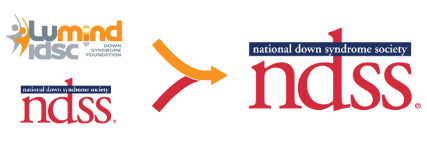Pharmaceutical company Eli Lilly today announced results of a phase III clinical trial that proves their anti-amyloid drug, donanemab, significantly slowed cognitive and functional decline in people with early symptomatic Alzheimer’s disease.
Advances in the treatment of Alzheimer’s disease are of critical importance to the Down syndrome community, as Alzheimer’s disease is the leading cause of death for people with Down syndrome.
Today’s important milestone in the latest of three recently developed anti-amyloid therapies is significant because as the drug succeeded in slowing cognitive and functional decline, trial participants retained their ability to continue to perform the meaningful activities of daily living such as managing finances, driving, engaging in hobbies, and conversing about current events. It also showed that these study participants were at a lower risk of progressing to the next stage of Alzheimer’s Disease when compared to the participants who took a placebo in the study.
The Phase 3 results also demonstrated there is more work to be done to understand the implication of amyloid plaque presence in the brain and the incidence of amyloid-related imaging abnormalities, ARIA. The most common ARIA is a temporary swelling in an area or areas of the brain (ARIA-E) or a small brain bleed “microhemorrhages” or a more severe brain bleed, “superficial siderosis” (ARIA-H).
In this study, ARIA-E occurred in 24.0% of treated participants, with 6.1% experiencing symptomatic ARIA-E. ARIA-H occurred in 31.4% in the donanemab group and 13.6% in the placebo group. The majority of ARIA cases were mild to moderate and resolved or stabilized with appropriate management. ARIA is usually asymptomatic, although serious and life-threatening events can occur. In this study, the incidence of serious ARIA was 1.6%, including two participants whose death was attributed to ARIA and a third participant who died after an incident of serious ARIA.
Overall, the Phase 3 study data confirm the benefit observed in the donanemab study for treatment in people with early symptomatic Alzheimer’s disease and, if approved, may represent a significant step forward and allow them to continue to participate in activities that are meaningful to them.
Unfortunately, no one with Down syndrome was included in the clinical trials of donanemab, nor in any of the previous trials in this drug class. But there are encouraging signs that the barriers to inclusion are being chipped away by the work of LuMind IDSC and our partners.
The LuMind IDSC community remains hopeful that people with Down syndrome, who face a hugely disproportionate risk of Alzheimer’s disease (90%) than the general population (12%) will soon have access to these potentially life-changing therapies.
IS THIS DRUG SAFE FOR ADULTS WITH DOWN SYNDROME?
To our knowledge, no one with Down syndrome has been included in any of the clinical trials to date so the safety profile of donanemab in the Down syndrome population remains unknown. For that reason LuMind IDSC is actively advocating for safety trials (including through our collaboration with the drug’s manufacturer Eli Lilly) to take place as soon as possible with donanemab and the other FDA approved anti-amyloid therapies.
WHAT ARE CONSIDERATIONS FOR FUTURE ALZHEIMER’S CLINICAL TRIALS WITH DONANEMAB IN DOWN SYNDROME?
At this time, we do not know when a safety clinical trial for donanemab in adults with DS will take place. LuMind IDSC will do what we can to support such an effort and we are advocating for the trial to take place as soon as possible. We will keep you updated as soon as we learn more.
WHAT CAN MY FAMILY DO?
Families will play an important role in accelerating research into DS-AD. Increased participation is critical for the next phase of Down syndrome research. Please consider:
- Learning and sharing information on our web site about Down syndrome-associated Alzheimer’s disease: free, vetted resources for families available in myDSC, real-life stories, resources for medical professionals, too.
- Participating in research: speak to your doctor or clinic contact about upcoming clinical trials, and investigate research opportunities that are right for you and your family member with DS (LuMind IDSC opportunities). You will also be able to find out through our Trial Finder when the next trials take place. You can also mention the trial opportunities to other families.
- Signing up to our monthly newsletter to keep current on Down syndrome research news and the latest on clinical trials and treatment access for Alzheimer’s therapies.
